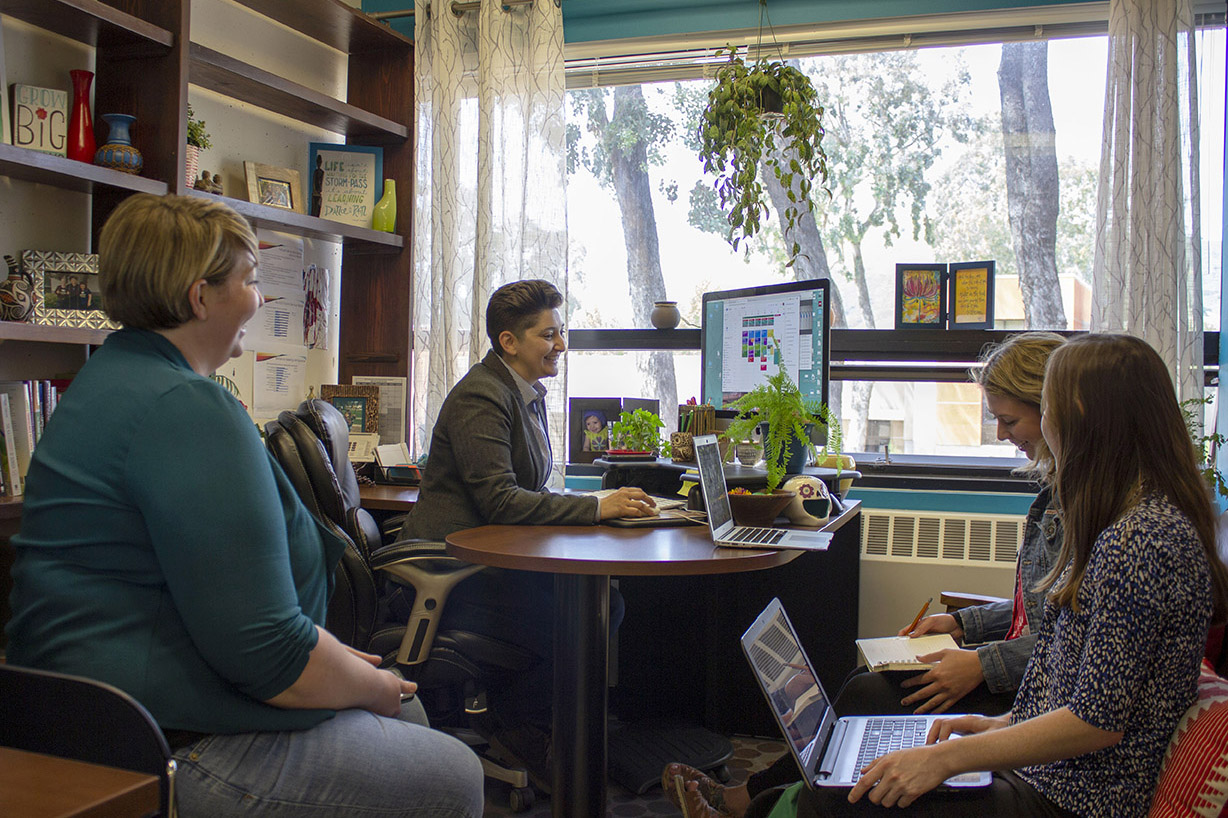Psychology professor Jay Bettergarcia and the Queer Community Action, Research, Education, and Support (QCARES) Program received a $519,700 grant to support SLO ACCEPTance, a nine-month program that will train professionals on how to provide mental health services for LGBTQ+ community members in San Luis Obispo County.
Bettergarcia said this project is important given the lack of LGBTQ+affirming providers within San Luis Obispo County.
“We need more therapists who are knowledgeable about the unique needs of our queer and transgender community,” Bettergarcia said.
Bettergarcia is the principle investigator of the project and has been developing the idea with others in the community, people at other universities and San Luis Obispo County Behavioral Health.
The collaboration is also composed of expert researchers, trainers and therapists across California, including Director of Training and Education Programs at the Los Angeles Gender Center Theodore Burnes, Director of Community-based Clinical Programs at the UCSF Child and Adolescent Gender Center Ben Guilhufe, Assistant Professor of Clinical Psychology at Alliant International University in Los Angeles KJ Conover, and Vice President of Santa Barbara Transgender Advocacy Network Emmie Matsuno.
The team also includes project coordinator, Cal Poly public policy graduate student Elissa Feld, QCARES lab managers and recent Cal Poly alumni Emma Wedell and Amanda Shrewsbury, as well as student research assistants.
Bettergarcia said there are various efforts in place to create a database of providers so people who are looking for therapists knowledgeable about LGBTQ+ community members can more easily find them.
“I hope that fewer people fall through the cracks and that more people get the services they need via their school counselor, a private practice therapist or a sliding scale low-cost option for those who are uninsured or underinsured,” Bettergarcia said.
According to a news release, a Growing Together Initiative survey of the San Luis Obispo County LGBTQ+ community showed the reasons members of the community abstained from seeking mental health care services included fear of being mistreated by local providers and not being offered enough services. About 10 years later, LGBTQ+ community members identified mental health services as one of the most important service needs in America.
The release also said three San Luis Obispo surveys — the 2014 California Healthy Kids Survey, the 2019 QCARES Mental Health and the 2019 QCARES Mental Health Needs Assessment — found 49 percent of LGBTQ+ youth in San Luis Obispo County considered attempting suicide within the 12 months prior to taking the survey.
The goal of the SLO ACCEPTance Project is to improve access to mental health services for members of the county’s LGBTQ+ community and for them to feel more comfortable with seeking these services.
They are also collecting data about what works in diversity training so this model can be used by other programs across the country. Bettergarcia said this has been in the works since 2017.
Bettergarcia said it took a long time to envision what the project might look like, to consider various options and to work with County Behavioral Health on the details and contract. The project was finally funded in early 2019, and the first training in will be in Fall 2019.

